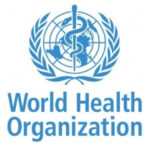UNITED NATIONS, Apr 30 (APP): While calling for an end to the Gaza war, UN Secretary-General Antonio Guterres has demanded an independent investigation into reports by Palestinian authorities of mass graves discovered in the besieged enclave after bodies with hands tied or medical tubes attached to them were found in multiple sites, including two hospitals.
“It is imperative that independent international investigators with forensic expertise are allowed the immediate access to the sites of these mass graves to establish the precise circumstances under which the Palestinians lost their lives and were buried or reburied,” the UN chief told reporters at UN Headquarters in New York on Tuesday.
He also urged Israel against invading southern Gaza’s city of Rafah, the last refuge for more than 1.4 million Palestinians, after the Israeli Prime Minister Benjamin Netanyahu said an offensive would go forward regardless of the outcome of truce talks with Hamas.
A military assault on Rafah would “be an unbearable escalation, killing thousands more civilians and forcing hundreds of thousands to flee,” he said.
He added that while there has been “incremental progress” towards averting “an entirely preventable, human-made famine” in northern Gaza, much more is urgently needed, including for Israel to follow through on its promise to open “two crossing points between Israel and northern Gaza, so that aid can be brought into Gaza from Ashdod port and Jordan”.
Turning to the north, where vulnerable people are already dying of hunger and disease, he urged the international community to “do everything possible to avert an entirely preventable human-made famine”.
Lack of security is a major obstacle to distributing aid across Gaza, and he stressed that humanitarian convoys, facilities, and personnel as well as people in need “must not be targets”.
“We welcome aid delivery by air and sea, but there is no alternative to the massive use of land routes,” he said, before again calling on Israel to allow and facilitate safe, rapid, and unimpeded humanitarian access throughout Gaza, including for the UN’s Palestine relief agency, UNRWA.
Guterres also addressed how Israeli attacks have “decimated” the health system in the enclave, where two-thirds of hospitals and health centres are out of commission, while many of those remaining are seriously damaged.
“Some hospitals now resemble cemeteries,” he said, voicing deep alarm over reports of the discovery of mass graves at several locations, including at Al-Shifa and Nasser hospitals.
More than 390 bodies reportedly have been exhumed at Nasser Hospital alone, and “there are competing narratives around several of these mass graves, including serious allegations that some of those buried were unlawfully killed,” he added.
The UN chief said it is imperative that independent international forensic investigators are allowed immediate access to these sites to determine the precise circumstances under which hundreds of Palestinians lost their lives and were buried or reburied.
“The families of the dead and missing have a right to know what happened, and the world has a right to accountability for any violations of international law that may have taken place,” he said.
The Secretary-General ended his remarks by drawing attention to UNRWA and its “irreplaceable and indispensable work” supporting millions of Palestinians in Gaza, the West Bank, Jordan, Syria, and Lebanon.
“UNRWA’s presence across the region is a source of hope and stability. Its education, healthcare, and other services provide a sense of normality, safety, and stability to desperate communities,” he said.
The agency recently appealed for $1.2 billion to address the humanitarian crisis in Gaza and to respond to needs in the West Bank, where violence is rising.
UNRWA largely depends on donors and some 16 countries halted their contributions earlier this year following Israeli allegations that 12 staff were involved in the 7 October attacks. The UN appointed an independent body to review the agency’s efforts to ensure the humanitarian principle of neutrality.
The panel, headed by former French foreign minister Catherine Colonna, recently published its report which found that “the set of rules and the mechanisms and procedures in place [at UNRWA] are the most elaborate within the UN system”.
Guterres said an action plan is being put in place to implement the report’s recommendations, and he appealed for cooperation from donors, host countries, and staff.
Meanwhile, most countries that suspended contributions to UNRWA have resumed them, and the Secretary-General said “we are optimistic that others will join.” Additionally, some UN Member States have given to the agency for the first time, while private donors have also provided support.
However, as a funding gap persists, he urged Member States and donors to pledge generously to ensure the agency’s work continues.
“This is the moment to reaffirm our hope for and contributions to a two-State solution – the only sustainable path to peace and security for Israelis, Palestinians, and the wider region,” he concluded.







